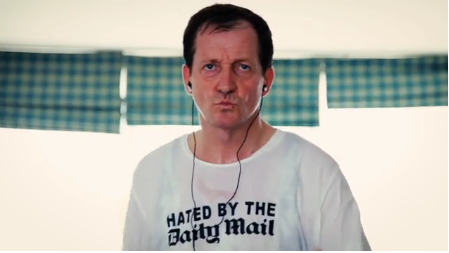Movie industry marketing men, provided they had an A list cast and a big advertising budget, were once guaranteed a minimum of three days’ major takings at the box office.
The sheer weight of such a campaign would guarantee busy cinemas on the first Friday, Saturday and Sunday of release. Through the week, word of mouth would then help dictate takings for the next weekend. Two weekends of large takings heralded a success. A big dip between the two meant the film was in trouble.
Now however, according to a communications colleague who works in film PR, there is only one guaranteed pay day, the first Friday. The change is largely down to social networking sites which allow instant and, when communicated en masse, very powerful judgements to be made. ‘If people come out of a film on a Friday night and say on twitter or Facebook in big numbers that they hated it, it’s dead,’ says my colleague. ‘If they love it, we know we have a hit.’
It is the most human of reactions, as familiar to centuries old village squares as today’s ‘water cooler’ equivalents – you see something, you want to tell friends what you thought. So on leaving Nine – early – I tweeted that I got as far as Three. In leaving Invictus, I tweeted that I didn’t care about all the snotty reviews, I loved it. And when I wandered online to see if I was alone, on both films I discovered I was not.
There are lessons in this for politics. One of the unexpected consequences of the media age and the digital revolution has been to give people the power to shape their own media landscape, and to shape it with others. Barack Obama’s use of the web in his campaign to become US President is sometimes misunderstood. It is true that he used it to raise huge sums in small amounts. Every bit as important, he used it to create a mood, to help turn sympathisers into supporters, supporters into activists, then galvanise and empower those activists to run their own events and mini-campaigns under his strategic umbrella.
This shift was brought home to me at the Labour fundraiser in Lancashire I mentioned recently where a student activist told me she came from a non-political family, and had largely unpolitical friends, but she was confident most would vote Labour ‘because every time I see them, I give them a reason to.’ That is the campaign mindset required for today. It is virtually impossible for Labour to get media coverage for success stories in public services. The mainstream media just aren’t interested. So people are posting their own, and sharing them. Similarly, campaign materials, strategic planning documents and policy handbooks which were once closely guarded at the centre are likely to be posted online for networks within networks to use as they want.
These are changes which benefit Labour and the Lib Dems, bereft as they are of the kind of money available to David Cameron’s Tory Party with backing from Lord Ashcroft and other wealthy donors. How the parties adapt to these changes won’t necessarily mean the difference between winning and losing. But it will help.
*** Buy books and raise cash for Labour. Go to http://www.alastaircampbell.org/bookshop.php. Half of money raised in online sales of The Blair Years, individually signed by AC, goes to the Labour Party.




In regards to changing the movie industry, all we need to do is look at ‘Paranormal Activity’. The films was seriously low budget, but the viral marketing was spot on.
Turning to Politics, we need to show the British People the #changewesee as supporters and advocates of the Labour Party and its policies.
I like the ‘one reason to vote labour every time I see them’ idea. My reason would probably be the same each time and would consist of just two words: George Osborne.
Village square a neat observation. I spend at least part of every morning – maybe half an hour – just dipping in and out of various conversations online, then the same at work with real people. Saw one of the Tory posters last night. Less effective if you are conditioned to laugh at them.
I love movie adverts. Love the man with the rich voice who does the trailers. Trailers best part of the trip to the cinema.
The other lesson for politics is speed. These reactions form very quickly, and it is important to be with or ahead of the curve. I think Labour are getting better but still way behind where Obama was
” UK government posts first January borrowing on record. £4.3 billion.”
Yet 30% apparently still believe that Brown is the solution to, rather than the cause of, this debacle? Extraordinary!
it has definitely enhanced success of the film industry and political parties, like you mentioned Obama’s campaign i think without it he would not have reached out to the youths as he did and got those votes.
About twitter and power in the film industry
——————————————–
In confidence, speaking as one pedant to another, Mr Campbell, sir. Unsure how to raise so delicate an issue with you, but have you any plans to discretely correct the slapdash, schoolboy-howler variety of bloop-blooper that heads your otherwise perfectly-typeset blog? Dated 18th February and published opposite, please?
Why? Because it’s causing me such irritation, hoping that some other kindly soul would point it out, hush-hush, and spare your blushes for you. But, alas, it’s been DAYS now, and still I see no proofreading equivalent of the Good Samaritan in sight
Knowing you to be a gentleman, a veritable stickler for such detail, I trust you’ll take this observation kindly. And refrain from accusing me of the monstrously-smug self-righteousness I am now feeling
Or bluff it out, the same sneaky way I’d do. For example, select from multiple well-worn excuses out there. Including headings do imply bigger point-size, sans-serif font, hence more difficult to proof. Yours, typeset in a different colour, too. Makes proofing even more beastly for the author to spot. Still, only takes a mo’ to correct
Whereas misspellings in headlines would give your Search Engine Optimisation Team nightmares. Screws up their keyword-stuffing, see? And attention-grabbing headlines get read up to FIVE times more than body-copy, anyway. Provided you spell the keywords accurately, of course
TM ——–
———-
If the film industry wants to fill the cinemas there is one sure fire way – TELL THE DISTRIBUTORS TO TURN DOWN THE WRETCHED VOLUME!!!
THE ADVERTS AND TRAILERS ARE TOO NOISY!!!